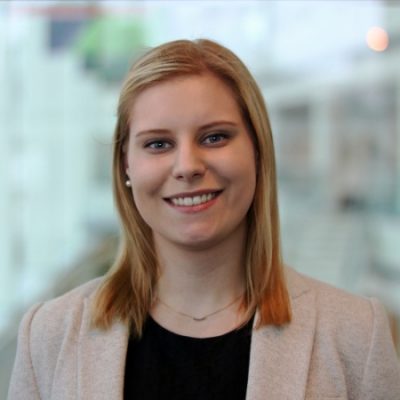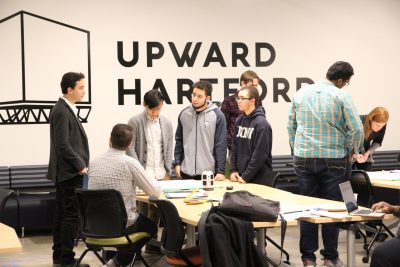 This year the University of Connecticut was invited to participate in Hackathon, an event hosted by Upward Hartford. Upward Hartford is a new innovation / co-working space located in downtown Hartford open to entrepreneurs looking for a place to create new ideas and other innovative projects. The Hackathon was open to everyone in the community and local colleges were encouraged to send members to participate. This year OPIM Innovate sponsored a team of freshman engineering students who are also pursing the analytics minor. These four exceptional students were eager to sign up and represent the university at the three day event.
This year the University of Connecticut was invited to participate in Hackathon, an event hosted by Upward Hartford. Upward Hartford is a new innovation / co-working space located in downtown Hartford open to entrepreneurs looking for a place to create new ideas and other innovative projects. The Hackathon was open to everyone in the community and local colleges were encouraged to send members to participate. This year OPIM Innovate sponsored a team of freshman engineering students who are also pursing the analytics minor. These four exceptional students were eager to sign up and represent the university at the three day event.
Each day of the Hackathon was dedicated to solving challenges in the health industry utilizing digital technology. On the first day, participants frwere told they need to come up with a technological solution to a challenge in the health industry. Participants were given a variety of different topics to help them guide their project, but the UConn students decided to take an independent route and tackle an issue related to chronic illnesses.
From their full day of brainstorming, the UConn team decided to create Motivate Me, an app to promote healthy lifestyles. “The app is a health app that generates health information from variables and other health apps to make specialized packages for the users.” The goal is to get points by going to gyms or healthy places, and when a user achieves enough points, he or she will receive a package. The intention of this was to prevent chronic diseases, like diabetes, because some of them are preventable. “My inspiration was actually from Pocket Points, an app where users get points to redeem at food areas for leaving their phones off in class,” said Robert McClardy, a member of the UConn team.
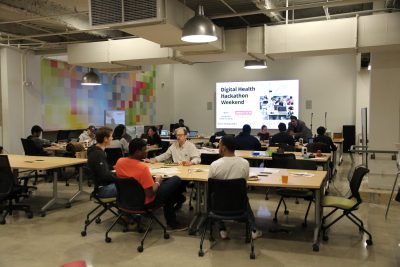
The team used a program called Wireframe to create a preliminary version of the app. This program allowed them to design exactly how Motivate Me would work, with user friendly interactive components such as a health and location tracker. Once the team was able to “develop” the app, they rehearsed a presentation for day three. The third day was dedicated to a presentation to a panel of judges from different companies. Here the participants discussed their inspiration and purpose of the app, a market analysis, the target audience, their finances, and a timeline for how they could get the product up and running. Although the team did not place, they took the initiative to approach the judges to see how they could improve.
“This is something great to get involved in as an underclassmen and I would strongly encourage other students to go,” McClardy said when recounting his experiences in the Hackathon. The weekend is a great way to get exposure to the field, work on communication skills, problem solving, and make connections along the way. OPIM Innovate is looking to sponsor future teams to send to Hackthons or case competitions hosted at Upward Hartford in the future.
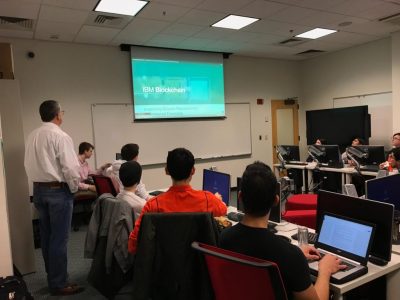 Following his workshop last week on An Introduction to Blockchain,
Following his workshop last week on An Introduction to Blockchain, 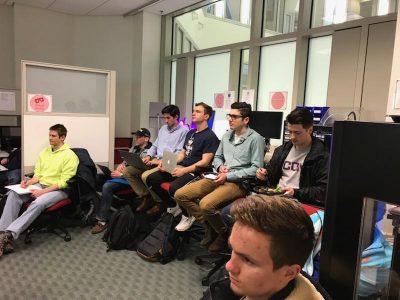
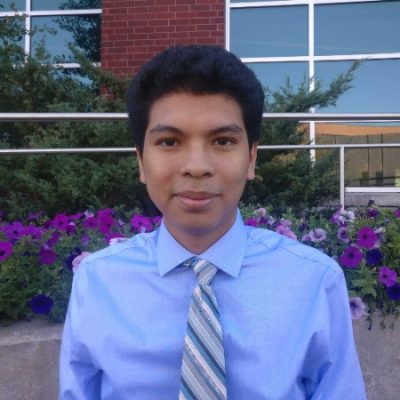
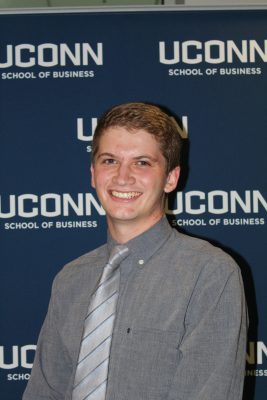
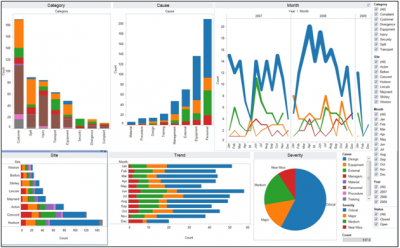
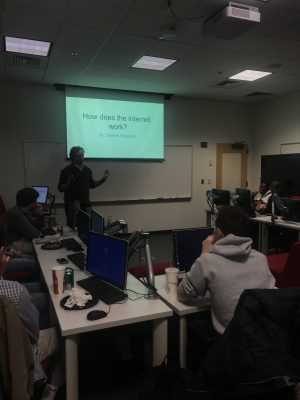 The internet: an everyday tool that has somehow become obscure and mysterious in both its definition and the way it works. On Friday, February 9, Adjunct Professor
The internet: an everyday tool that has somehow become obscure and mysterious in both its definition and the way it works. On Friday, February 9, Adjunct Professor 